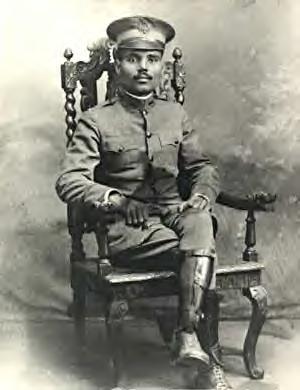"Wilson had “conveyed the impression to the Puerto Ricans that Puerto Rico’s independence would be recognized,” Albizu wrote. He joined the army in the hopes of ensuring that recognition. Participating in the war, Albizu believed, would “be of great benefit for the Puerto Rican people.” He imagined what effect “thirty or forty thousand lame, blinded, or otherwise mutilated Puerto Ricans” returning from heroic combat in Europe would have had on Puerto Rico’s bid for self-government."
"When the United States entered World War I, Albizu volunteered and served as a first lieutenant in the US Army. He helped organize and train the Third Battalion Infantry of Puerto Rico and was the only “colored” officer at Camp Las Casas, the army training base on the island. Both in the army and during a military tour through the American South, Albizu encountered widespread racism: he saw it on buses and trains, at lunch counters, and in restrooms, stores, post offices, and even churches. He heard it when soldiers joked behind his back, not realizing that he understood every word."

Lieutenant Pedro Albizu Campos (U.S. Army)





